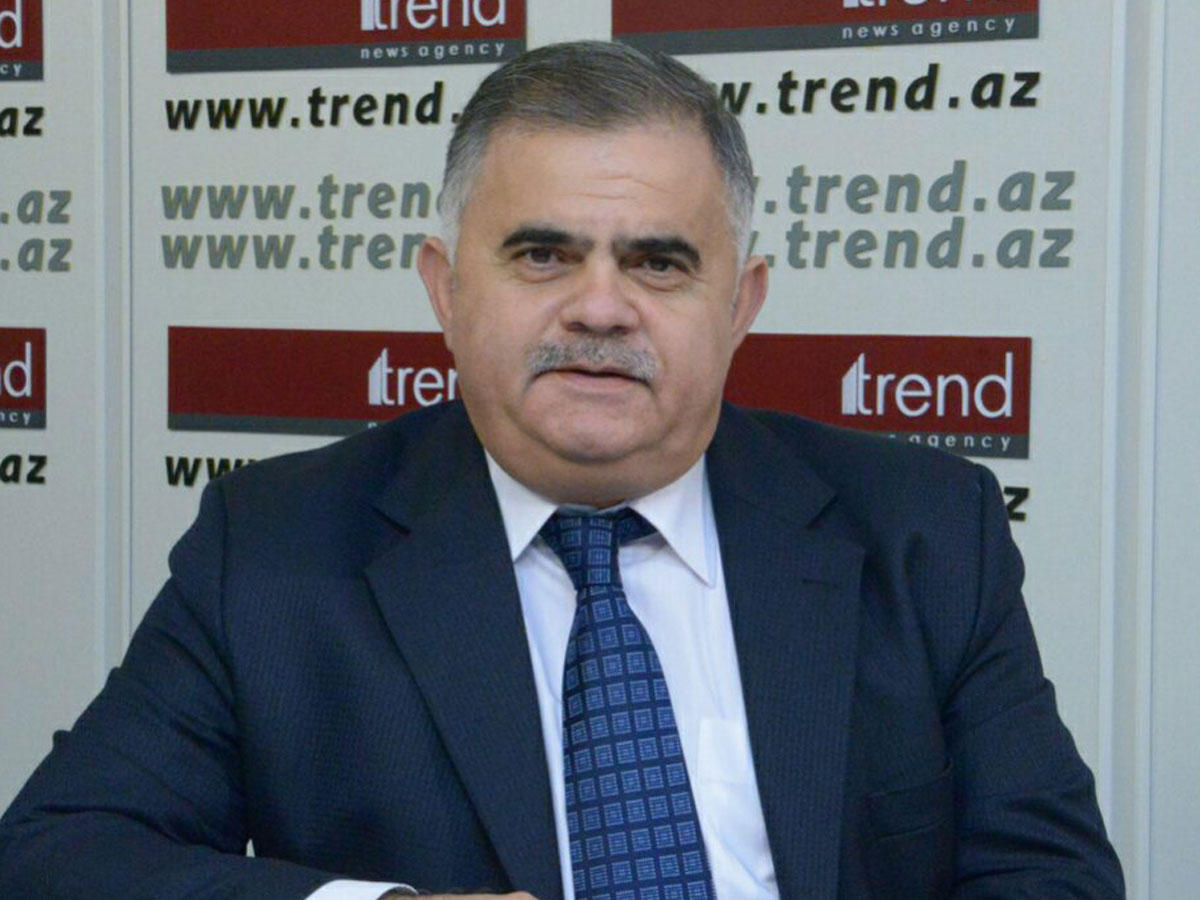Syrian conflict: Attitude of each side must be questioned, pondered and taken into account

An interview with Arzu Naghiyev, deputy director general of Trend news agency, political analyst, has been published by the Global Institute for Democracy and Strategic Studies (GIDSS).
The conflict that once began with anti-government protests,
later turned into a full-scale civil war.
11 million people are displaced and are running from the battles of
the forces loyal to President Bashar al-Assad, the opposition and
the Islamic State (IS) jihadists.
According to UN statistics, the death toll in the conflict of June
2013 reached more than 90 thousand. Another report from activists
and the UN said that more than 250 thousand people were killed by
August 2015.
Since the beginning of the conflict, 4.5 million people have
fled Syria; the majority of them are women and children.
Neighboring Jordan, Lebanon and Turkey cope with history's greatest
human influx.
The UN Security Council called for the implementation of the 2012
Geneva Declaration. The declaration "by mutual agreement" is to
establish a transitional government.
The talks, known as the Geneva-2, broke down in early 2014. UN
special envoy, Lakhdar Brahimi, accused the Syrian government of
rejecting the demands of the opposition.
The USA and Russia are the main “participants” to the conflict. The
negotiations still continue between the sides, which are supporting
different points of view.
Deputy Director-General of the Trend Agency and an expert on
regional geopolitics, Arzu Nagiyev, shared his opinion with
us.
The preparation of the new Constitution may be considered the
turning point for the conflict settlement. Could this "new"
Constitution save Syria?
I think that the first step is not for the creation of a new
constitution. Of course, it is possible to return to the issue of
the constitution after the establishment of a ceasefire.
The sides must find mutual interests for the resolution of the
conflict. Then they have to deal with the problem of refugees, the
number of which is rapidly growing.
For the time being, there is no power or government in the
territory of Syria which is able to control and maintain stability
in the country.
So, the most important step must be the maintenance of stability,
otherwise no constitution will heal Syria’s wounds. Undoubtedly,
Bashar al-Assad wants to preserve the government and think about
the constitution which meets his interests.
Earlier, Russian Foreign Minister, Sergei Lavrov, and his US
counterpart, showed willingness to start a new phase of
negotiations. What is the situation now?
Despite the fact that Russia is trying to keep the peace talks on
Surya, there are other main players, such as the USA, Turkey and
Iran. The position of each country to the conflict must be taken
into account.
Unfortunately, this process is in deadlock. In this case, there is
no need to hold another round of negotiations, because there will
not be any solution. The attitude of each side must be questioned,
pondered and taken into account.
What is the position of Donald Trump’s administration regarding the
conflict?
I do not believe that the foreign policy of the United States is
going to significantly change during Trump’s presidency,
particularly in the Syrian conflict.
In his pre-election statements, Mr. Trump emphasized that he will
fight terrorism, including the territory of Syria. This process is
already taking place and it was clearly shown during the last
summit in Riyadh and, of course, in the attitude towards Iran. That
is why it is not expected to see any changes of the US’ policy
towards Syria.
Several Arab countries broke off relations with Qatar. Could this have an impact on the region or the issue of Syria?
Of course, the effect will be felt not only in Syria but also in
the whole Arab world.
Saudi Arabia, Egypt, UAE, Bahrain, Yemen and Libya's decision will
unambiguously extend the resolution of the Syrian conflict.
This process is not happening for the first time. Such things
happened a couple of years ago.
I think the main problem is in the "Muslim Brotherhood"
organization, which is considered to be the opposition. Qatar's
supportfor this organization is not accepted by all of these Arab
states.
What is the role of Turkey and Iran? What is the position of the
USA towards Russia's rapprochement with Turkey?
Turkey is a member of NATO and is a strategic partner of the US. Of
course, there was coldness in relations between Turkey and the USA
because of the issue of FETO.
But it is important to stress the fact that Turkey’s position
towards Kurds is completely different; and it does not match with
the position of Russia and the USA.
Of course, the USA cannot be glad for the rapproachment of Turkey
and Russia, and there are a number of reasons for that. The main
problem is that the opinions of the states are totally opposite to
one another.
The only purpose of the Turkish government is to prevent the
creation of a Kurdish state near its borders; but Russia wants this
to happen. At the same time, there are a number of opposition
governments in Syria that are supported by these states. The USA
does not want the rapproachement of Turkey and Russia because in
this case Russia will dominate and influence the region, which is
unacceptable for the USA.
---
Follow us on Twitter @AzerNewsAz
Here we are to serve you with news right now. It does not cost much, but worth your attention.
Choose to support open, independent, quality journalism and subscribe on a monthly basis.
By subscribing to our online newspaper, you can have full digital access to all news, analysis, and much more.
You can also follow AzerNEWS on Twitter @AzerNewsAz or Facebook @AzerNewsNewspaper
Thank you!
